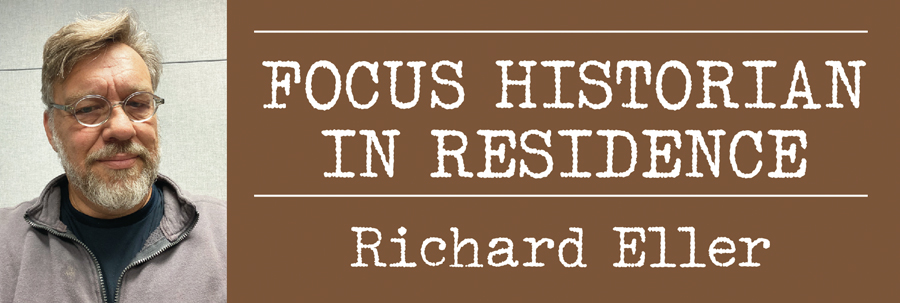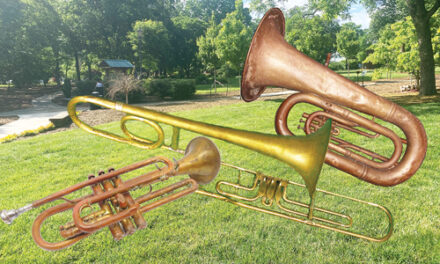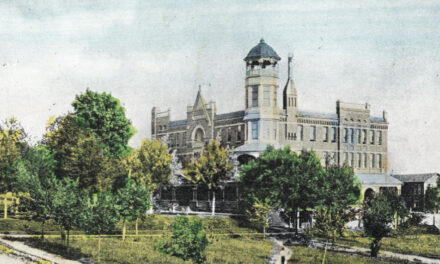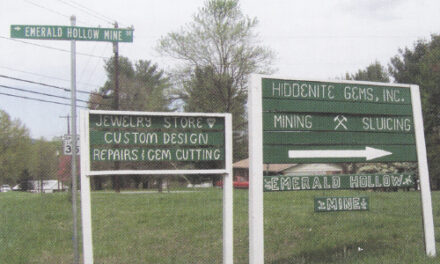 When we go into the great beyond, there is a lot of information we take with us. How we lived, perhaps some of our favorite experiences, at least the ones we liked to talk about. Most of it goes when we go. Think about how much gets left behind with only those who remember us to tell the tale. They rarely do us justice.
When we go into the great beyond, there is a lot of information we take with us. How we lived, perhaps some of our favorite experiences, at least the ones we liked to talk about. Most of it goes when we go. Think about how much gets left behind with only those who remember us to tell the tale. They rarely do us justice.
In researching the early history of Hickory, the name J.R. Ellis kept coming up. Recognized as one of the founders of the city, he was a name, but not much more. However, little by little, story by story, I began to wonder, who was this guy? Turns out, he was a much more engaging figure than a name on a page.
James Ransom Ellis came to Hickory from down around Clemmons. He was brought up as a Moravian and studied medicine, though nobody knows exactly where. As a young man of 24, he came to Hickory Tavern, immediately establishing himself not only as the community’s first physician, but also an entrepreneur. He joined his brother and the Link family in establishing Hickory’s first store.
When the Civil War came, he joined a Confederate regiment as their surgeon. Some accounts say he only served five months, then quit to come back to Hickory. Others claim he was wounded at the Battle of Malvern Hill in 1862 while performing the task required of most doctors during and after battle, amputations.
Either way, he returned and during an abortive attempt to incorporate Hickory Tavern the following year, he was appointed one of six town commissioners. That effort got lost in the paperwork of a state losing the war. It would take another seven years before Hickory officially incorporated.

Photo: J.R. Ellis, as seen dimly, both through history and the surviving image, along with the masthead of his paper, the (Hickory Tavern) Carolina Eagle.
Dr. Ellis recognized the futility of the southern effort to win the war. Reportedly, he began to deal in currency exchange. While true believers of the Confederacy used, supported and swore by the paper money issued from the southern government, Ellis hedged his bets. He began trading $1.50 worth of Confederate money for gold, silver or the most traitorous commodity of all, United States greenbacks. Some questioned his loyalty to the cause, but they could not doubt his business acumen. By the close of the war, the rate of exchange had grown to ten to one and Dr. Ellis had made the smart move, and a handsome profit.
His fellow citizens did not fault him too much. Ellis got elected to the state convention to ratify a new constitution, one that expressly forbid enslavement. Then they voted him into the General Assembly. He used the profits from his sale of Confederate dollars to build a hotel in Hickory, known as the Central. He ran it until a fire gutted the building in 1887. He continued to practice medicine too, while also taking over the first newspaper in Hickory, the Hickory Tavern Eagle, which quickly became the Carolina Eagle, sometime around 1871. HIs house stood where First Methodist church is now located.
By all accounts, Dr. Ellis was a spirited sort. Another newspaper in town reported how the good doctor got into bad fisticuffs with a fellow citizen after Ellis insisted on using “rough and improper language” during an exchange of views about a speech given in Conover. He paid for the indiscretion by losing the “lively fight.” After he “received a scalp wound which bled profusely” there was no word detailing if the physician healed himself.
Only one week after wife Emma E. Ellis died in 1891, he too passed. News of his death noted that “the grief at her loss unhinged his mind” and he was sent to state hospital in Morganton.
A stone obelisk marks his grave in Oakwood Cemetery, leaving no indication of the boisterous life lived by one of Hickory’s earliest characters. We can only image the untold stories that he took with him.








